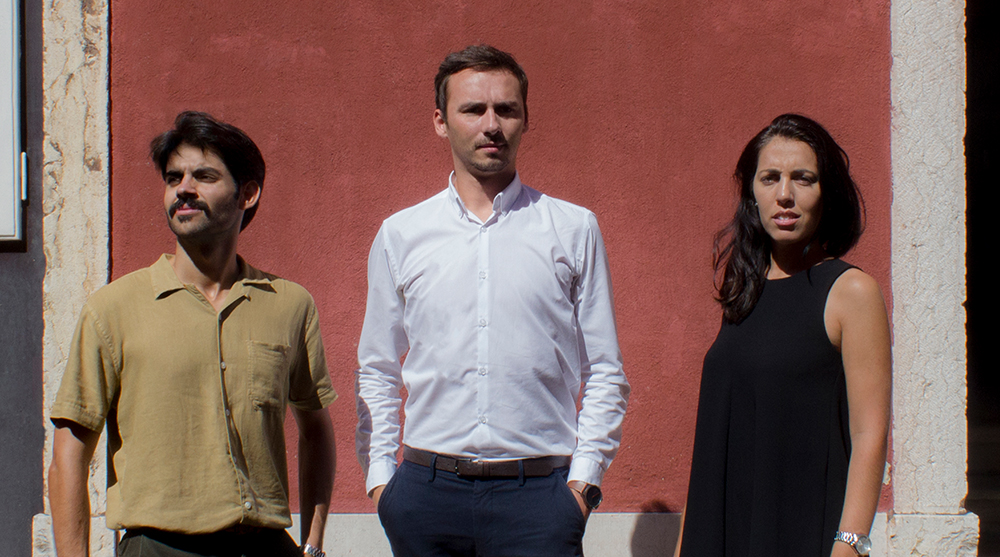We’d like to take the opportunity to introduce you to one of our Honorable mention winners for our “Yoga House On A Cliff” competition – Ana Isabel Santos, João Varela and Paulo Dias from Portugal!

MESA Atelier from Portugal
Atelier MESA was founded by architects Ana Isabel Santos, João Varela, João Tavares, and Paulo Dias. With the same academic path, marked by issues concerning the territory, the ecology of resources, and respect for heritage, the four colleagues and friends headed to Lisbon to collaborate with different studios, which prepared them for the challenges of the profession.
First, without a physical place of work, they began by informally meeting at the end of the day, around any "MESA" (table), cafe, restaurant, or even home. They began to participate and win some prizes in contests, and the first place in the “Blue Clay Country Spa” contest, organised by Buildner, marked the formal constitution of the studio in 2017 and lead to greater visibility of their work as a team.
Brief information about the projects that you/your company have been involved with. For instance, what scale have you focused on/preferred, any significant projects where the company/ individuals have been involved?
The approach to each project is expressed in the recognition of the territory, its values, and the elements that characterize it. This methodology allows to attribute to each intervention unique characteristics of valorisation and understanding of the constructed and biophysical elements. Being that each project is unique, it is in the use of local raw materials, in the study of the construction techniques of vernacular architecture, in the saving of resources, and in the values present in each building or surrounding landscape that the guiding thread for most approaches and interventions is found. All scales matter – from the territory to the detail drawing, passing through the route to the building – and the various visits made to the intervention site are essential for the perfect understanding of the place. We highlight as a possible project that can define the work developed by the team the winning proposal for the Public Tender of the Barrancos Mortuary House, Portugal (in a partnership between the Municipality of Barrancos and the Ordem dos Arquitectos), where the motto “Build with the landscape” is the conduit for the entire design process.
What does architecture mean to you and what is the role of an architect in your society?
For us as a team, architecture means something that goes beyond construction; something that involves the culture of the place, time, and the creation of space. Something that should use a thought that seeks first to value what exists and, at the same time, to improve the living conditions of the population that will experience it (inside and outside) and, only in the end, the creator's desire. In summary, we understand that architecture should be a common place, where it is possible, through the design of qualified spaces, accessible to all, and working in full balance with the built environment or with the landscape where it is inserted to project memories beyond the buildings.
Why do you participate in architecture competitions?
The greater dynamism of the competition platforms has been contributing, in a very positive way, to publicize new teams, approaches, and different work processes that end up contributing to the plurality of contemporary architecture practice all over the world. For all these reasons, participation in architecture contests proves to be very challenging, as it makes it possible to materialize ideas freely and spontaneously, which often does not happen in the professional context.
What advice would you give to individuals who struggle to decide whether it would be beneficial for them to participate in architecture competitions?
We understand that competitions expand the democratic dimension of architecture, making it accessible to everyone through processes guided by the merit of the team's work and with dedication to the higher quality of the proposals presented. Sharing with peers proves to be indispensable, taking into account that sometimes, these same ideas and experiences would not possibly have a place in the professional context, making the tender process fundamental for the professional growth.
Top 3 Reasons Why You Should Enter Architecture Competitions
Curious about the value of architecture competitions? Discover the transformative power they can have on your career - from igniting creativity and turning designs into reality, to gaining international recognition.
Learn more




























